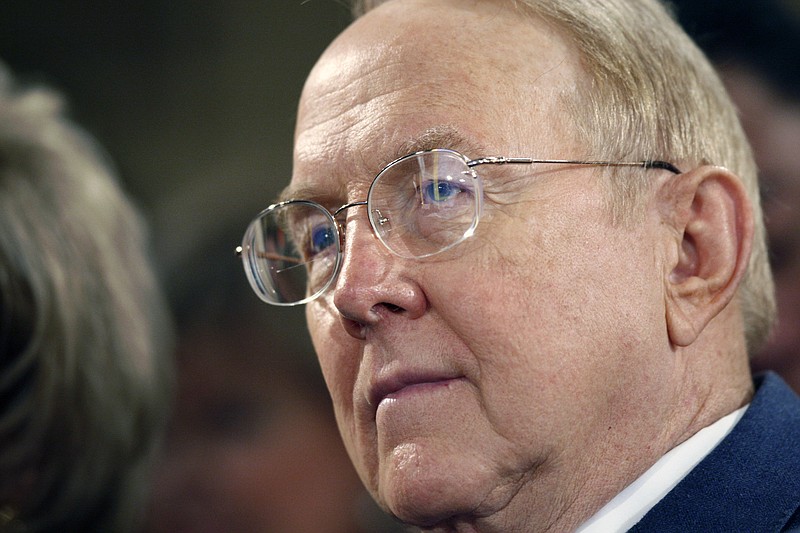Evangelical Christians have been given significant credit for making the difference in United States presidential elections that put Republicans Ronald Reagan, George H.W. Bush and George W. Bush in office in 1980 and 1984, 1988, and 2000 and 2004, respectively.
For many reasons, including the death of many evangelicals from the Greatest Generation and the rise of younger, more secular generations, the influence of evangelical Christians has waned. But no political expert would deny they still compose a crucial part of the electorate.
With that in mind, the National Religious Broadcasters (NRB) recently hosted a forum, "Evangelicals Debate the 2016 Election: Trump, Clinton or Other."
Though we can never know what is in their hearts, Donald Trump would likely acknowledge that, publicly, he is no more than a nominal Christian. Hillary Clinton, meanwhile, cites her Methodist upbringing as important in forming who she is as an adult.
We know enough about both candidates as adults to know that both play fast and loose with the truth. That makes it difficult for evangelical Christians, much less Christians of any variety, to believe that either one is truly representing the Christian faith as one who closely follows the teachings of Christ.
Those thoughts were likely on the mind of the NRB debaters, two of whom were Trump supporters going in and two of whom were against Trump.
Spoiler alert: None of the four concluded the evening by deciding to support Clinton.
Erick Erickson, a Trump opponent and editor of The Resurgent.com, said the Republican nominee "has bragged about his affairs," "bragged about stiffing others with the bill," "cheated women, widows," "said he's never had to ask God for forgiveness," "does not identify Jesus Christ as his Lord and savior but says he's a Christian."
"If we are in the public square advocating for someone like that," he said, "what good is it of us as Christians to say we believe in the inerrancy of Scripture when Scripture tells us we should not be advocating for a person like that."
Janet Parshall, radio host of "In the Market with Janet Parshall," took a different tack, explaining that evangelicals should think biblically and critically, and that no single issue was more important than the makeup of the Supreme Court. The next president, she said, could appoint three or four justices who might serve for decades.
"A flawed candidate should not prevent us from opposing a more dangerous one, one who has a profoundly, clearly articulated worldview," she said, mentioning that Clinton believes "in the denigration of marriage" and "the annihilation of the preborn."
"God has a habit of using flawed and broken people even when it doesn't look right to us," she said. "For me, I choose to keep the republic and secure the system."
Bill Wichterman, a former congressional staffer and special assistant to President George W. Bush who opposes Trump, said he worries the Republican candidate will keep only his own counsel.
"Does Donald Trump have a reputation as a man who likes to surround himself with people who challenge his authority and like to hear from dissenting opinion?" he asked. "No, quite the opposite. I don't have any confidence that Mike Pence, a good man, will be able to have that influence on Donald Trump."
Finally, Bishop Harry Jackson, a black Maryland pastor and chairman of the High Impact Leadership Coalition, said a man whose candidacy has been challenged about racism "may be the only one who is able to bring some substantive healing to the racial divide" by offering practical solutions.
He said he is supporting Trump over religious freedom, the Supreme Court and support of Israel, plus four reasons of interest to black and Hispanic evangelicals: education reform, urban economic empowerment, restoration of nonviolent offenders after release from prison and pro-family tax incentives.
Clinton, he added, "will simply perpetuate the status quo, and the aura of criminalization in the black community, and welfare dependency will be continued."
Erickson said he planned to write in the name of former University of Tennessee and pro quarterback Peyton Manning, while Wichterman, who said he found the "lesser of two evils" argument compelling, nevertheless planned to vote for Evan McMullin, a conservative, independent candidate.
Scripture is clear about choosing upright leaders but less so when neither candidate fits that bill. Yet Christians are commanded to pray for our leaders and told that God is displeased with godless leadership.
In the end, evangelical Christians who believe their faith should infuse all that they do - and 28 million are registered to vote - certainly should vote. After all, 335,000 voters in four swing states in 2012 made the difference in which candidate was elected.
And the candidate - even the flawed candidate - for whom we believe they should vote is the candidate who would be best placed to advance the type of kingdom on Earth espoused by Christ.
